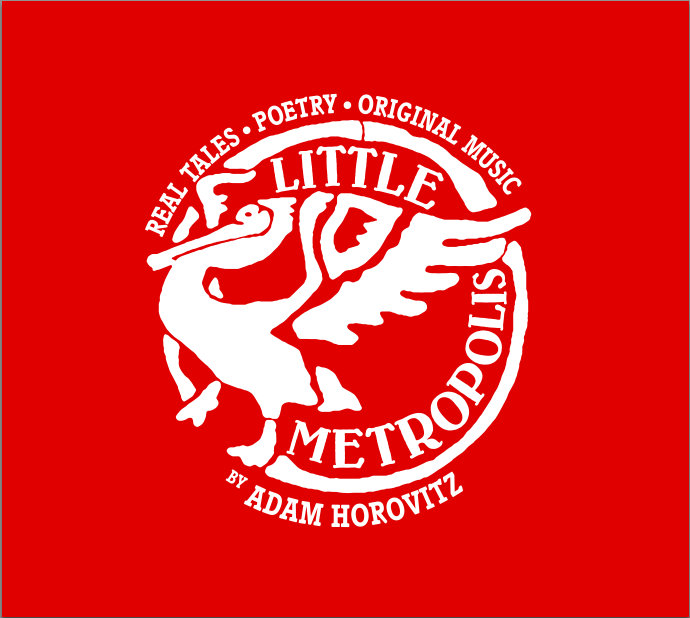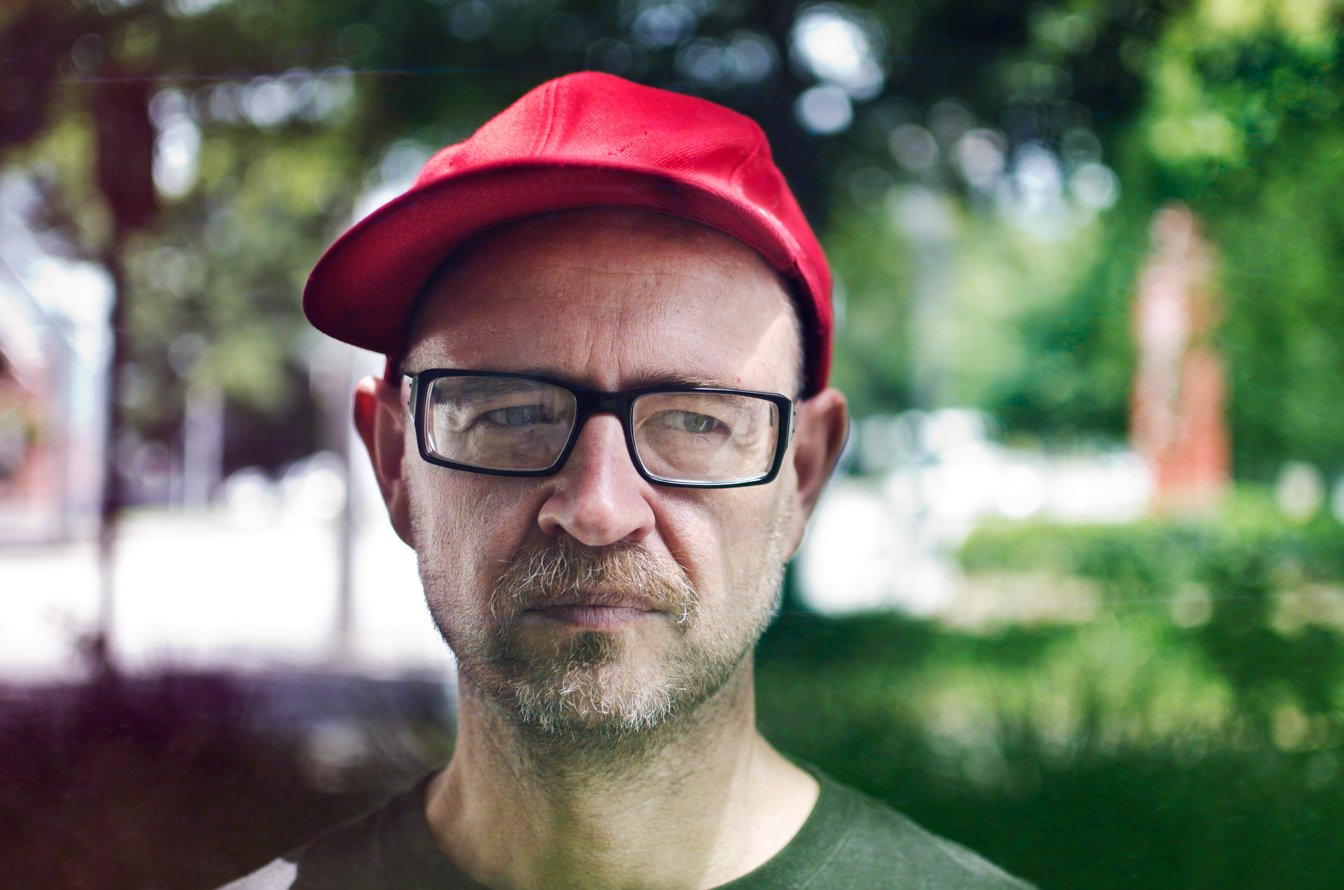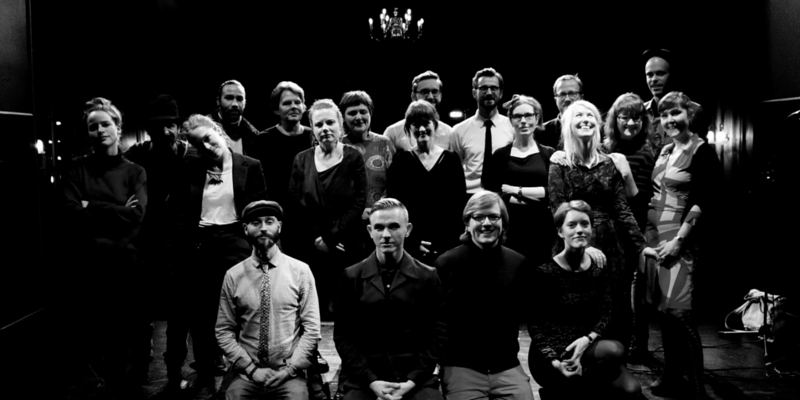Little Metropolis by Adam Horovitz & Josef Reeve
– Reviewed by David Clarke –
Poet Adam Horovitz and musician Josef Reeve were commissioned by the Stroud Fringe in 2015 to produce Little Metropolis, a show about this Cotswold town with a character all its own. Still marked by its industrial heritage and blessed with a strong independent spirit, those of us who live in the region know Stroud for its farmers’ market, its independent shops and cafés, and its alternative culture, not least its lively roster of local writers. Horovitz, the son of poets Michael and Frances Horovitz, grew up just outside the town in the Slad Valley, made famous by Laurie Lee’s Cider with Rosie, and recently celebrated the area in his excellent memoir A Thousand Laurie Lees (2014). As in this earlier book, Horovitz’s poems in Little Metropolis are about growing up and entering the adult world in this enchanted, but also somewhat eccentric environment. However, whereas his prose autobiography and some of the poems in his first collection of poetry, Turning (2011), focus on Horovitz’s personal experience of the valley and the town as a boy and young man, Little Metropolis attempts a collective autobiography of Stroud, albeit a highly impressionistic one.
The project as a whole comprises four elements. First there are the poems, ten of them in all, eight having been produced during the collaboration with Reeve and two taken from earlier work. These can be read in a handsomely produced booklet, entirely separately from Reeve’s music, which is the second element of project. Thirdly, Horovitz and Reeve drafted in illustrator Adam Hinks and photographer James Kriszyk: the former provides sparse but energetic line-drawings to the booklet, while the latter has captured the brash glare of the town’s night-life. Finally, the fourth element of the project consists of interviews with a handful of Stroud-dwellers of various generations, which are montaged together between Horovitz’s poetry performance on the CD. The CD, like the booklet, can be purchased and enjoyed separately.
Some of Horovitz’ poems adopt a visionary stance, peeling back layers of historical time as the poet surveys the landscape around the town, such as in ‛A House Built from Cloth’ and ‛Stopping with a Bicycle on a Hill above Stroud, Thinking of Ivor Gurney.’ This vision is transformative, alchemical even, rendering the Severn through Gurney’s eyes as ‛a scarred, broken sword / shot through with filigrees of winter light’ or imagining the old stones of the valley’s former industry as ‛teasle teeth / chewing at my feet’. Descending into the town, however, Horovitz finds a landscape of ghosts of another kind: memories of nights out and long days spent in coffee shops in his youth. Here we find adolescent exhilaration, but also a rueful look back from the point of view of a damaged present in a little town ‛made vast by care and time.’ Ginsberg’s Howl is invoked: ‛I saw youths reeling incredulous / in the giddy flow of night traffic’ (‛A CCTV Operator Speaks’); yet the poems which deal with the town’s pubs and shops have at times a Frank O’Hara touch to them, as in ‛The Golden Fleece’: ‛Mark’s pulled up outside / in a car with half a Buddha in it.’
What strikes me most is how deeply felt this work is. The poet is in place, speaking out of intensely lived experience. This is no mere intellectual exercise, but an exploration of townscape as personal psychogeography:
The lean forms of school friends
from more than half your life ago
gather as shadows behind you,
arched against glass, studied
and desperate as pop video extras,
whisper arcane, yearning slang.(‛Shops’)
Despite the fact that these are poems written for the most part to be accompanied by music, only the title poem is more of a pop lyric than a stand-alone piece of verse. Reeve’s music provides a variety of backdrops to Horovitz’s performance on the CD from the folky opening to the indie rock of ‛Little Metropolis’ and the acid jazz of ‛The Golden Fleece’. For the most part, however, the poems and interviews with Stroud residents are given a backdrop of electronica which sits somewhere between Brian Eno and The Orb. These combinations of spoken word and soundscape seem to work the best, for example in ‛The Pelican’, which reminded me of Pulp’s ‛My Legendary Girlfriend’ for its loose juxtaposition of emphatically intoned text and techno. The synergy between the poems and the music feels slightly less smooth on the opening track (‛House of Cloth’), where Horovitz seems to be on the verge of elongating certain words under the influence of the music. In the jaunty ‛Shop Song’, the decision to attempt to match the metre of the text as closely as possible to the bouncing rhythm does not quite come off, leaving Horovitz breathless and some of the lines rushed. However, this is a rare misstep.
The echoing voices of Stroud inhabitants between the poems reflect on the key theme of the project as a whole: the places which seem to offer us a sense of enduring identity are themselves in a state of constant flux. In this sense, as Horovitz writes in his introduction, this could be anyone’s home town. He perhaps goes a little far in suggesting that everyone’s childhood home has ‛stained itself upon your memory as brightly as light through a church window on a still, sunny day’, but even those readers and listeners who, like me, are not nostalgic types, will find enough richness in both the poems and their musical settings to allow them to share in Horovitz’s fascination for this little corner of the world.




